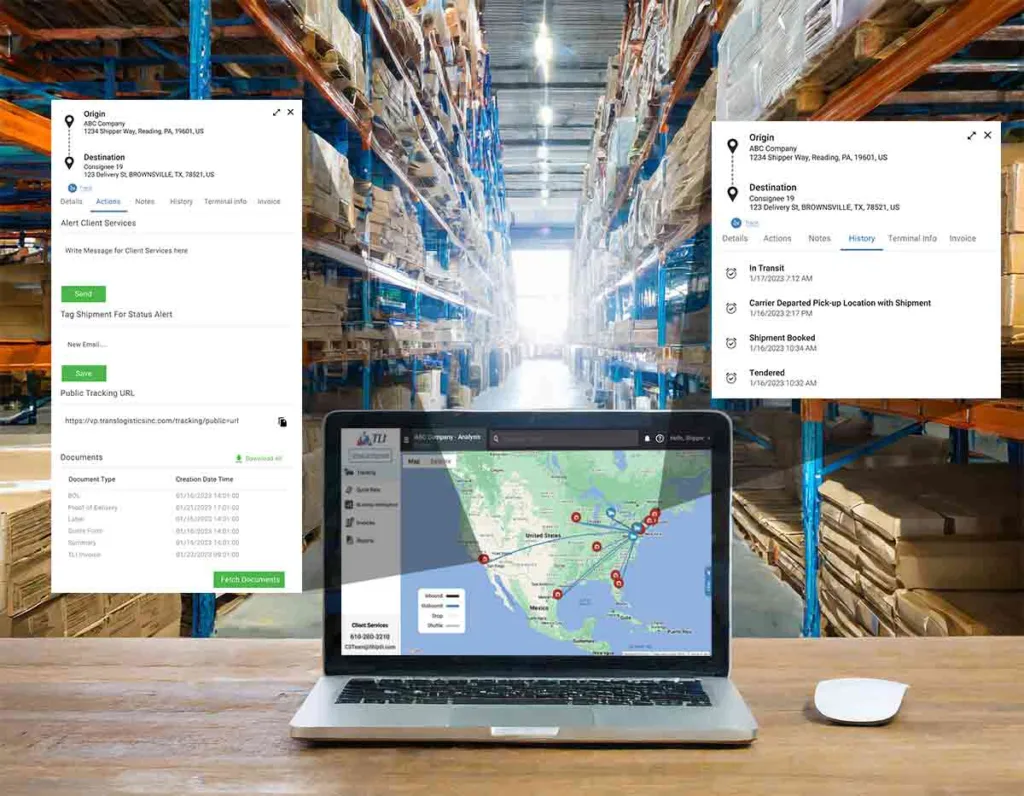Introduction
The freight brokerage industry has evolved over nearly five decades, with Translogistics (TLI) establishing itself over three decades ago in 1994. Throughout this period, TLI has experienced consistent growth, interspersed with occasional downturns. Currently, the industry faces one of its most significant downturns, exacerbated by the contrast with the unprecedented highs seen during the COVID-19 pandemic from 2020 to 2022. As in previous cycles, recent market shifts have sparked exaggerated beliefs that “this time is different,” with optimism reaching peaks and pessimism sinking to lows. However, historical patterns suggest that neither extreme perspective is entirely accurate. Nevertheless, a dispassionate examination of recent market trends offers valuable insights. In an era of escalating expenses, shippers must carefully assess potential freight brokerage vendors, and this whitepaper aims to guide them through the process.
Freight Broker Evaluation
Selecting the ideal freight broker involves careful consideration as not all brokers offer the same level of service. Establishing a solid relationship with the right freight broker can alleviate the stress associated with daily delivery requirements. Exceptional freight brokers offer numerous advantages for your business, functioning as genuine partners and collaborating with you to fulfill your needs efficiently, safely, and economically. To identify the most suitable freight broker, it’s crucial to assess various options, prioritizing reliability and the availability of top-notch resources.

Shipper Expectations:
Save Money
It’s essential for freight brokers to consistently seek cost-saving opportunities for you. One effective method is consolidating your volume LTL shipments into truckloads with multiple stops whenever feasible. An alternative method is proper mode optimization, comparing parcel rates against your LTL rates, or LTL rates against Volume API pricing. Skilled freight brokers achieve savings by securing optimal rates from dependable sources, guaranteeing swift and secure deliveries. Moreover, they leverage appropriate technology to meet your specific requirements.
Authentic Human Service
Nothing is more unprofessional than crisis calling, and your vendor not operating their phones. Experiencing the frustration of being directed to an automated voice transfer system when you need to speak to someone is aggravating. Now couple this, when there is urgency behind your inquiry behind an emergency load. To avoid this annoyance, ensure your freight broker doesn’t employ an automated voice attendant or a system that necessitates navigating through a series of prompts before reaching a live employee.
Delegate Work
Your freight broker should excel at handling time-consuming tasks, including:
- Scheduling delivery appointments
- Mode optimize volume LTL
- Communicating with inbound vendors to manage shipments
- Daily shipment tracing
- Utilizing TMS software technology
- Managing cargo claim submissions
- Auditing freight invoices using a BPO
- Integrating with ERP systems
- Providing supply chain data and analytics
- Require References
The role of a freight broker is to establish a connection between you and a service provider for shipping your cargo. An excellent transportation broker is reliable and instills trust by offering secure and dependable sources, while also encouraging open communication, allowing you to ask questions freely.

Freight Broker Checklist
To effectively assess each shipping brokerage, it’s essential to ask specific questions. We’ve outlined a checklist within this white paper to ensure you hire the most suitable freight broker for your requirements:
- Experience: How long have they been in business, have they made it through a recession?
- Staffing: How many employees do they have, and do I get a dedicated rep?
- Licensing and Bonding: Is the freight broker CTB licensed by the TIA?
- Contract Terms: Review their broker/carrier contract. Will it cover the cost of damaged goods?
- Insurance Coverage: Do they have contingent cargo insurance as a backup to the carrier’s cargo insurance?
- Carrier Selection Process: What is the broker’s carrier selection process?
- Carrier Reputation: Does the carrier have any posted complaints against them?
- Safety Verification: Are they verifying and vetting the carrier’s operating authority, insurance coverage, CSA scores, and safety rating?
- Service Offerings: Do they handle multiple modes such as truckload, LTL, parcel, rail intermodal, air freight, warehousing, flatbeds, vans, and reefers?
- Environmental Sustainability: Does the broker have their EPA Smartway Certification?
- TMS Technology: Do they offer TMS technology offering tracking and scheduling automation that can be integrated into my ERP?
About TLI
Translogistics Inc (TLI), founded in 1994, stands as a leading third-party logistics (3PL) firm, specializing in transportation management services and distribution services tailored to tackle common industry challenges. With a dedicated Freight Brokerage Division, we provide comprehensive support, including transportation RFP assistance, auditing services, and access to a robust transportation management system. Backed by our award-winning operations team, we excel in swiftly resolving shipping issues and ensuring timely, cost-effective delivery of goods. Entrust your supply chain transportation to TLI, allowing you to scale rapidly while minimizing costs.